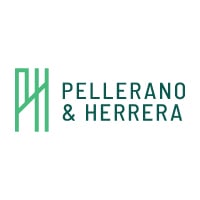

Legal and compliance manager | E.T. Heinsen



Carolin Nicole Gonzalez Olaverria
Legal and compliance manager | E.T. Heinsen
How do you manage legal matters during periods of instability or crisis, and how does your legal strategy align with the broader business strategy to ensure organisational resilience?
The organisation operates under quality management system criteria and risk assessment for potential situations. As a result, legal management follows preventative regulations to address any event, measuring the economic, financial, legal, and operational impact.
In line with the above, it is evident that the legal aspects related to the organisation are controlled, and in the case of instability or crisis, the system already accounts for this, with the necessary actions being taken accordingly.
What are the main cases or transactions you have recently been involved in?
The organisation regularly deals with legal transactions due to the nature of its operations. Some of the key processes handled include the renewal of guarantees to ensure operations, data updates with the tax authorities, procedures related to the Land Registry, organising assemblies, and registering them with the relevant Chamber of Commerce.
It is worth noting that the organisation does not frequently engage in judicial cases, so this has not been detailed in this document.
What measures has your company taken to incorporate sustainability practices into its core business operations, and how does the role of the general counsel help drive and ensure sustainable practices within the company?
The company conducts annual strategic planning to contribute to operational growth. These plans directly impact management, which then creates its own action plan to meet the requirements.
Similarly, the board promotes continuous training for company employees, aiming for ongoing process improvement and keeping up with industry trends.
In this regard, one of the best practices is the implementation of management systems, which help reduce errors, attract a wider range of clients, and generally enhance the business. These systems promote organisational progress.
It is also important to highlight the significant role that the lawyer plays in an organisation, from ensuring regulatory compliance to resolving conflicts. In my view, having a department that adheres to industry regulations and state-imposed requirements ensures the company’s operation. While having financial and human resources is important, without legal compliance, companies would not be able to operate, potentially leading to serious repercussions for those involved.
What emerging technologies do you believe will have the most significant impact on the legal profession in the near future, and how do you stay updated on these developments?
The systematisation of legal processes and transactions can be considered one of the most cutting-edge emerging technologies in this sector, as it reduces process costs, such as unnecessary travel to fulfil requirements that could be done virtually.
Many government organisations already have systems that allow interconnection between parties, and we believe this will continue to grow and evolve over time, significantly reducing in-person procedures.
It is important to note that, as organisations grow technologically, the legal community must also train accordingly to keep up with new processes. A modern lawyer should not only know the law but also be able to manage digital systems that allow them to thrive.
Legal and compliance officer | E.T. Heinsen